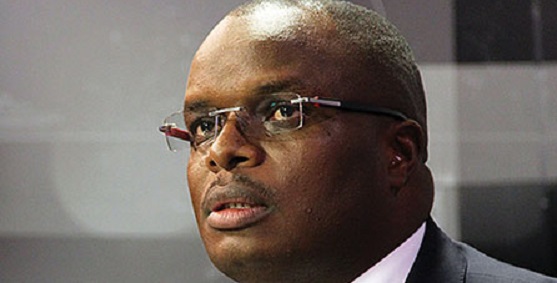Mozambique: Military escorts re-introduced in Cabo Delgado - AIM
45 years after its rise to city status: Matola in the eyes of mayor Calisto Cossa

O País / Matola mayor Calisto Cossa
The president of the Municipal Council of Matola, Calisto Cossa, makes a positive assessment of his first three years of governance and promises to complete the present administration cycle with a new image for the most WHAT municipality in the country.
In an interview with O País on the occasion of the 45th anniversary of Matola’s elevation to city status on Sunday 5 February, Cossa highlighted the growth of the road infrastructure network as one of the examples of the achievements of his three years of administration.
“I feel that there are improvements and, from the indications that come to us, we can say that, from 2014 to now, traffic circulation in the city of Matola has improved. It is possible for residents in the municipality to commute between the three administrative posts, namely, Matola, Machava and Infulene, in less time. This is what we want: to empower people a very important work to move without constraint and thereby enable Matola to grow faster,” he said.
Another advance that the mayor highlights has to do with land conflicts, which he says are now 10 times less frequent than they were in 2014 as a result of increased interaction between the residents and city council.
“In 2014 we had about four thousand cases of land use title conflicts. Now, we are talking about 300 or 400, which means that it has been possible to resolve situations that the municipality residents had but were not able to put directly to municipality councilmen and officials,” he said.
Public transportation
Despite the growth of the road infrastructure network, Matola, like other municipalities in the country, faces transportation shortages in the face of public demand. “We feel we have not yet reached the optimum when it comes to transporting citizens. Unfortunately, we still have citizens being transported in the famous ‘my love’ [buses] and it is not our desire to continue like this,” he said.
The mayor acknowledges that the current demand for transportation in the municipality is well above existing capacities and stresses the need for cooperation with the private sector to bring the situation into line.
“Our municipal transport company came into being as a result of the splitting up of the municipal transport company of Maputo. We received some of the Maputo buses (13 in circulation) and acquired 20. At this moment, because we are concerned about it, we launched a public tender last year for the acquisition of 20 more. This is the effort we are making, which is not enough, because in terms of buses, just the city of Matola needs about 400 buses for public transport. Just imagine what 400 buses in operation would be like. That is what we want, but as long as we do not have that capacity, we cannot and should not ignore the private sector,” Cossa said.
Cossa has announced the imminent arrival of another 10 buses, bought from the municipal budget, but says the ideal solution would be joint action between the three municipalities in the extreme south of the country, namely Maputo, Matola and Boane, noting that this is under way.
Impact of industry
Matola has the largest industrial park in the country, but, according to Cossa, this is still not enough.
“This is our brand. In addition to working with the central government in order to make the results of this industrialization felt at city level, we have begun, along with the National Association of Municipalities, the important work of cultivating the notion that industrial units must make some contribution, from the revenue point of view, in the locations where they are based.
“This work has already begun and, fortunately, there is help from other entities, like the provincial government. This joint work will make sure that we know what it means from the point of view of gross domestic product for industry to be in our city, because it is very important for us. It is not enough to be known as an industrial city without this industry bringing benefits to our citizens,” he said.
Impact of the crisis
Matola’s finances have also been affected by the current financial crisis. Although this situation has forced the city to amend its programs, Cossa says the important thing now is to find in the crisis an opportunity to generate financial solutions.
“We do feel the financial shock of the situation, which is not only national but also international, but, throughout this crisis, we are trying to find the alternatives, because they exist. We have to work harder, because we cannot continue to do the same thing we did in times of plenty with the diminished resources we have now. It is a matter of prioritization, rationalization and liberation of the spirit of initiative. And this is what we have been doing.”
The legacy
About two years after the end of the current management cycle, Calisto Cossa says Matola will see a transition to the post-municipal elections cycle of 2018: a sustainable, pleasant, growing Matola, a city that is a reference both at national and global levels. “A Matola where anyone can see a housing area here, an industrial area on the other side and, above all, a well-defined agricultural area. In short, a Matola that can serve as a flag for any administrator to visit the city.”












Leave a Reply
Be the First to Comment!
You must be logged in to post a comment.
You must be logged in to post a comment.